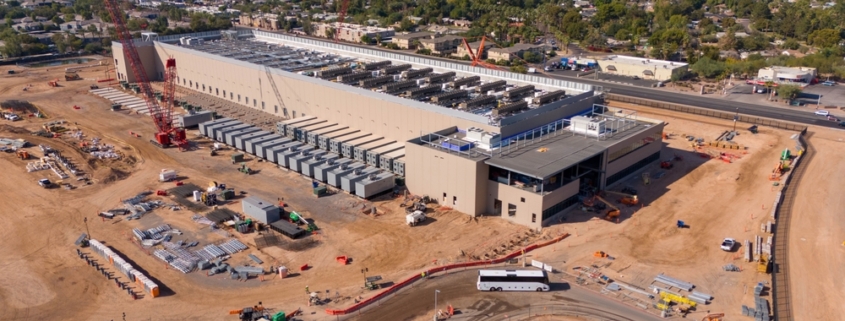Jefferson County’s GOP Legislators Yank Local Control of Data Centers Away from Residents
Jefferson County’s Republican delegation to the Legislature has just told local people it doesn’t matter what we think. Every one of Jefferson’s Delegates and Senators voted to approve HB 2014 authorizing data centers consuming massive amounts of electric power and water to be located pretty much anywhere in the state. And all this can happen without any local zoning or environmental control of the construction or operation of the data centers. This breathtaking anti-democratic law, dubbed the Power Generation and Consumption Act, is the first of its kind in the nation.
The justification for this is the same tired “jobs and economic development” story West Virginians have been fed for decades now. Governor Morrisey, who was the chief proponent of the Act, declared that enabling data centers would position West Virginia at the center of the artificial intelligence boom. Morrisey insisted on the removal of local control of data centers, knowing that local people who will have to live in the same neighborhood as these monsters wouldn’t willingly go along. And our Legislature, including all the Jefferson County delegation, thought this was a good idea.
What exactly are data centers? Think of large warehouses filled with computer servers. These servers train artificial intelligence. Current and widely used AI models like Open AI’s GPT-4 were trained at data centers that use around 30 megawatts of electricity at a time – roughly as much as 30 Wal-Mart stores use at any moment. A recent article in The Wall Street Journal predicts that by 2030 data centers for training newer AI models will need more than 5 gigawatts of electricity, about what the entire island of Manhattan consumes at a time.
One risk of this, of course, is that electricity will become more expensive for regular consumers. To avoid this, the Act allows the data centers to co-locate with their own power generating plant that would presumably supply all the needs of the data center. Any power source is allowed, including coal, gas or nuclear. Any power plant fueled by coal or gas would emit extensive air pollution.
Our neighbors in Northern Virginia have become plagued by data centers. Things got so bad that in September 2024 Fairfax County passed a revised zoning ordinance creating new setback requirements and noise monitoring. These changes came in response to public pressure and were adopted only after extensive public hearings and comments on the proposed changes. These are the very democratic devices West Virginians are now deprived of.
A controversy is brewing over the plan to locate a data center near the Tucker County towns of Thomas and Davis. A Virginia firm proposes the “Ridgeline Facility,” which if fully built could span 10,000 acres and be one of the largest data center installations in the country. The proposed power plant would operate at 1,000 megawatts.
But the Act renders public opposition powerless. It prohibits:
Counties and municipalities, whether by ordinance, resolution, administrative act, or otherwise, from enacting, adopting, implementing, or enforcing ordinances, regulations, or rules which limit, in any way, the creation of, and acquisition, construction, equipping, development, expansion, and operation of any certified microgrid district or certified high impact data center project.
What kind of government is afraid of input from the governed? What kind of political leaders think they know better than we do on important matters affecting our lives? Why shouldn’t we have a say in deciding between economic development that benefits the few and quality of life affecting everyone else?
These are all important questions. But now that we elected Governor Morrisey and the Republican super-majority in last year’s election, I guess we’ve had our moment of democracy and aren’t entitled to more. At least for now. But taking local control away from us means these questions will have to be answered, or rather the people responsible will have to answer for them, at the November 2026 election.

